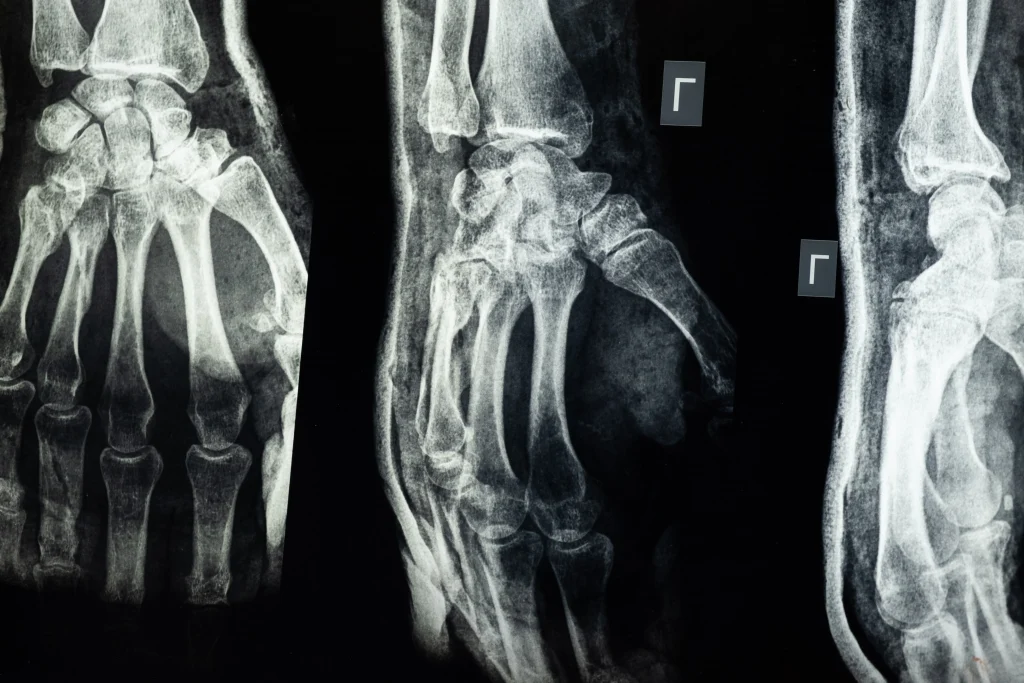Artificial Intelligence (AI) is a broad term used to describe machines that can “think” like humans. These machines learn from experience and get better at whatever task they’re doing over time. In the field of computer science, AI has been around since the 1950s when a group of scientists tried to program a computer to play chess. They wanted to find a way for the computer to understand its options and choose the best one. Since then, AI has evolved in many different directions. Today, it’s being used for everything from cancer diagnosis to robot surgery.
AI can be broken down into two main categories: machine learning and deep learning. Machine learning uses algorithms that are set up by humans to make decisions based on what has happened in the past. Deep learning is similar but it also includes more layers of complexity in its decision-making process. These layers can “think” about what they’ve learned and adjust their approach accordingly. For example, an AI program might learn from images to identify cats.
Artificial intelligence (AI) is increasingly being used in healthcare for diagnosis and treatment. From cancer detection and prevention to surgical assistance, AI is changing the way doctors work. But what exactly is AI? And how does it work?
Artificial intelligence (AI) is increasingly being used in healthcare for diagnosis and treatment. One of the most common applications is in medical imaging, where AI algorithms can be trained to identify features in images that may indicate the presence of a particular condition or disease. For example, AI algorithms have been used to detect cancer in mammograms, lung cancer in CT scans, and diabetic retinopathy in fundus images. Few of the applications of AI in healthcare are being shared below that can help medical professionals as well as doctors.
In this post we’ll explore all of these questions as well as go into more detail about how AI is being used in healthcare today. We’ll also look at some of the challenges that AI faces moving forward and why some experts think AI won’t be able to replace doctors anytime soon or maybe ever.
Medical Imaging
Medical imaging, such as x-rays, CT scans, and MRI, is one of the most common areas where artificial intelligence (AI) is being applied. AI can be used to analyze medical images to identify features that may indicate the presence of a particular condition or disease.
Application of AI in Medical Imaging
One of the most common applications of AI in medical imaging is in the detection of cancer. For example, AI algorithms have been trained to identify malignant tumors in mammograms and lung cancer in CT scans. These algorithms can be trained to recognize patterns in the images that are indicative of cancer, such as changes in the size and shape of the cells.
Another application of AI in medical imaging is in the diagnosis of diseases of the eye, such as diabetic retinopathy. AI algorithms can be trained to recognize patterns in fundus images that are indicative of the disease, such as changes in the blood vessels of the retina. This can help to improve the accuracy of diagnosis and the effectiveness of treatment.
AI can also be used to improve the efficiency of medical imaging by automating certain tasks, such as image segmentation and registration. This can help to reduce the time and resources required to process images, and make it easier for healthcare providers to access and share information.

Electronic Health Records
Another area where AI is being used in healthcare is in the analysis of electronic health records (EHRs). By analyzing large amounts of data from EHRs, AI algorithms can identify patterns and relationships that may indicate a patient’s risk for a particular condition or disease. This can help healthcare providers make more accurate diagnoses and develop more effective treatment plans.
Artificial intelligence (AI) can be used in conjunction with electronic health records (EHRs) to improve the accuracy and efficiency of healthcare.
Applications of AI in EHR
One of the main ways that AI can be used with EHRs is in the analysis of large amounts of data. By analyzing data from EHRs, AI algorithms can identify patterns and relationships that may indicate a patient’s risk for a particular condition or disease. This can help healthcare providers make more accurate diagnoses and develop more effective treatment plans.
AI can also be used to automate certain tasks associated with EHRs, such as data entry and coding. This can help to reduce errors and improve the efficiency of healthcare delivery. Additionally, AI can be used to identify patients who are at high risk of certain conditions, and flag them to the care team for follow-up, reducing the burden of care providers and improving the overall quality of care.
Another application of AI with EHRs is in natural language processing (NLP) which can be used to extract information from unstructured data, such as free-text notes and reports, and convert it into structured data that can be used for analysis and decision making.
However, the use of AI with EHRs also poses some challenges. One of the main concerns is the risk of bias in the data used to train AI algorithms. If the data used to train an algorithm is biased, the algorithm may produce inaccurate or unfair results. Therefore, it is important to ensure that the data used to train AI algorithms is diverse and representative of the population it will be used on.
Another challenge is the lack of transparency in the decision-making process of AI algorithms. Because AI algorithms are designed to learn from data and make predictions, it can be difficult to understand why a particular decision was made. Therefore, it is important to develop methods for interpreting and explaining the decisions made by AI algorithms.
Overall, the use of AI in conjunction with EHRs can improve the quality and efficiency of healthcare, but it is important that the technology is implemented and used responsibly. The use of AI on EHRs can further help in identifying patterns and trends in patient’s health data, and to make more accurate diagnosis and treatment plans, but the data needs to be accurate and bias-free.
Drug Discovery and Development
Drug discovery and development is an area where artificial intelligence (AI) is being applied to improve the efficiency and effectiveness of the process.
Application of AI in Drug Discovery and Development
One of the main ways that AI is being used in drug discovery and development is in the identification of new drug targets. By analyzing large amounts of data, such as genomic data and information on disease pathways, AI algorithms can identify potential drug targets that have not been previously identified.
AI can also be used to predict which compounds will be most effective in treating specific conditions. By analyzing data on the molecular properties of potential drugs, AI algorithms can predict which compounds will be most likely to bind to a specific target and have the desired therapeutic effect.
AI can also be used to optimize the design of preclinical and clinical studies, by identifying the most promising compounds and patient populations for further investigation. Additionally, AI can be used to analyze data from ongoing clinical trials to identify subgroups of patients who are most likely to benefit from a particular treatment.
Overall, AI has the potential to revolutionize drug discovery and development by improving the efficiency and effectiveness of the process, but it is important that the technology is developed and used responsibly. The use of AI can help to identify new drug targets, predict which compounds will be most effective, and optimize the design of preclinical and clinical studies. But, again, the data needs to be accurate and bias-free, and there needs to be transparency in the decision-making process of AI algorithms.

Challenges of AI in Health Care
While the use of AI in healthcare holds great promise, there are also challenges that need to be addressed. One of the main concerns is the risk of bias in the data used to train AI algorithms. If the data used to train an algorithm is biased, the algorithm may produce inaccurate or unfair results. Therefore, it is important to ensure that the data used to train AI algorithms is diverse and representative of the population it will be used on.
For example, if an AI program used for cancer diagnosis finds something abnormal on an MRI, what happens next? Does the doctor automatically tell the patient or is there more testing required? Who decides what happens next? And how much should patients be told about their condition? These are all questions that must be addressed before widespread use of AI in healthcare can take place.
AI also faces other challenges that need to be resolved before it can be used in every doctor’s office and hospital. One of these is the fact that AI isn’t very good at doing certain tasks, such as recognizing voices or finding objects in images. Another challenge is that AI requires a lot of data to learn from.
There are several challenges to the implementation of artificial intelligence (AI) in healthcare, some of the main ones include:
Data Quality and Bias
One of the main challenges is ensuring the quality and representativeness of the data used to train AI algorithms. If the data is biased or incomplete, the algorithm may produce inaccurate or unfair results. This is particularly important in healthcare, where the consequences of inaccurate predictions can be serious.
Explain ability and Transparency
Another challenge is the lack of transparency and explain ability in the decision-making process of AI algorithms. Because AI algorithms are designed to learn from data and make predictions, it can be difficult to understand why a particular decision was made. This can make it difficult for healthcare providers to trust and accept the results of the AI system.
Regulation and Standards
A lack of regulation and standards for the development and deployment of AI in healthcare can lead to a lack of consistency and reliability in the technology.
Privacy and Security
The use of AI in healthcare requires the processing of sensitive personal and medical information, which must be protected from unauthorized access and disclosure. Ensuring the security and privacy of patient information is a major challenge.
Integration with Existing Systems
The integration of AI systems with existing healthcare systems and workflows can be challenging and time-consuming.
Ethical Considerations
AI in healthcare raises a number of ethical considerations, such as accountability for errors, the potential for discrimination and the impact of automation on jobs.
Limited Access to Data
In some countries and regions, data is not available or accessible for the development and deployment of AI in healthcare. This limits the ability to train and test AI models, which in turn affects their performance and generalizability.
Overall, while AI has the potential to revolutionize healthcare by improving diagnosis and treatment, it is important that the technology is developed and used responsibly. By addressing these challenges, the healthcare system can ensure that AI is used ethically, fairly, and safely to benefit patients and society.